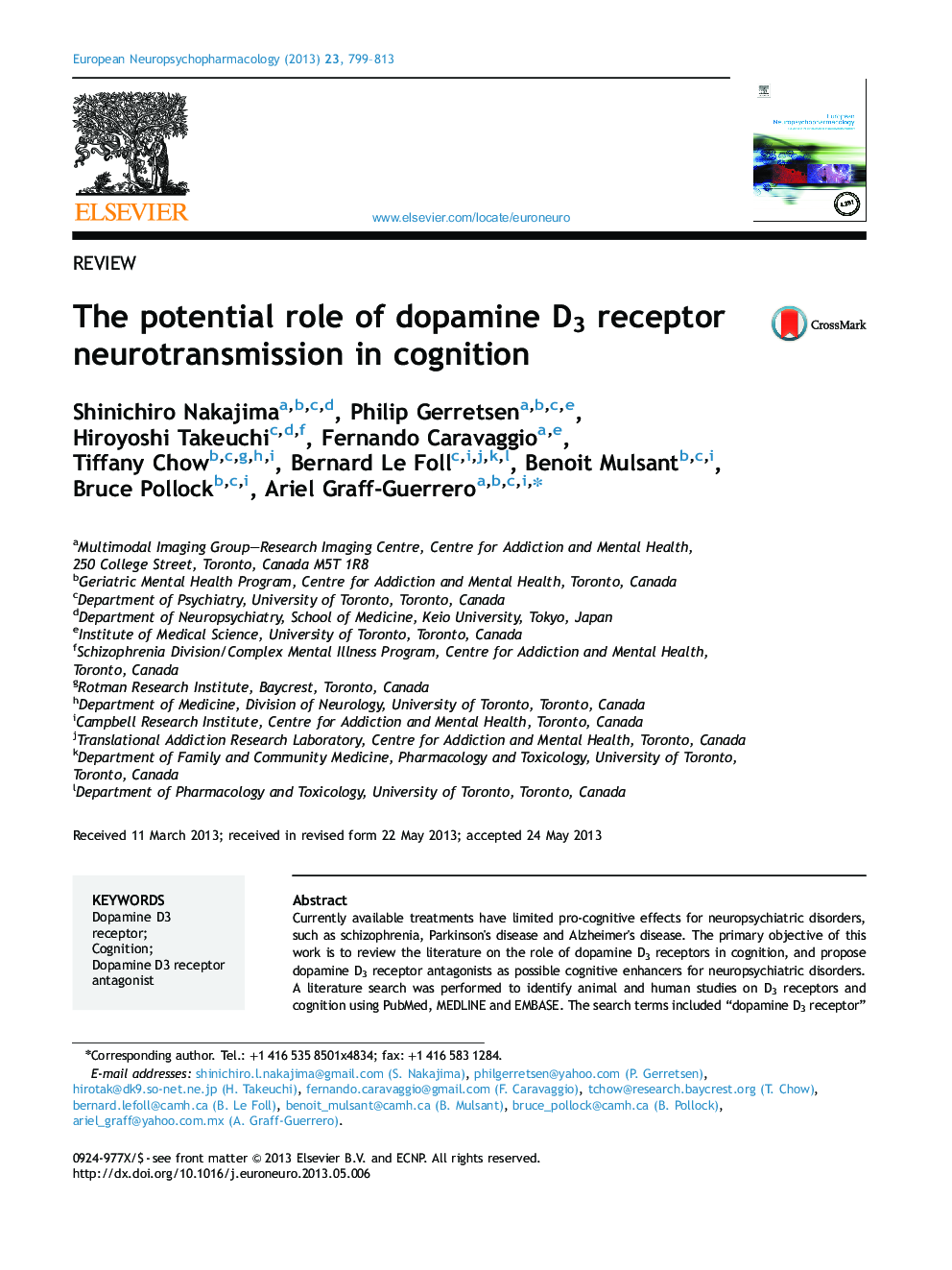| Article ID | Journal | Published Year | Pages | File Type |
|---|---|---|---|---|
| 319626 | European Neuropsychopharmacology | 2013 | 15 Pages |
•Currently available treatments have limited pro-cognitive effects for neuropsychiatric disorders.•We reviewed the 164 articles on the role of dopamine D3 receptors in cognition.•D3 receptors are associated with cognitive functioning in both healthy individuals and those with neuropsychiatric disorders.•D3 receptor blockade appears to enhance while D3 receptor agonism seems to impair cognitive function independent of age.•D3 receptor antagonists may act at the level of the prefrontal cortex, hippocampus, or midbrain.•We propose D3 receptor antagonists as possible cognitive enhancers for neuropsychiatric disorders.
Currently available treatments have limited pro-cognitive effects for neuropsychiatric disorders, such as schizophrenia, Parkinson's disease and Alzheimer's disease. The primary objective of this work is to review the literature on the role of dopamine D3 receptors in cognition, and propose dopamine D3 receptor antagonists as possible cognitive enhancers for neuropsychiatric disorders. A literature search was performed to identify animal and human studies on D3 receptors and cognition using PubMed, MEDLINE and EMBASE. The search terms included “dopamine D3 receptor” and “cognition”. The literature search identified 164 articles. The results revealed: (1) D3 receptors are associated with cognitive functioning in both healthy individuals and those with neuropsychiatric disorders; (2) D3 receptor blockade appears to enhance while D3 receptor agonism seems to impair cognitive function, including memory, attention, learning, processing speed, social recognition and executive function independent of age; and (3) D3 receptor antagonists may exert their pro-cognitive effect by enhancing the release of acetylcholine in the prefrontal cortex, disinhibiting the activity of dopamine neurons projecting to the nucleus accumbens or prefrontal cortex, or activating CREB signaling in the hippocampus. These findings suggest that D3 receptor blockade may enhance cognitive performance in healthy individuals and treat cognitive dysfunction in individuals with a neuropsychiatric disorder. Clinical trials are needed to confirm these effects.
